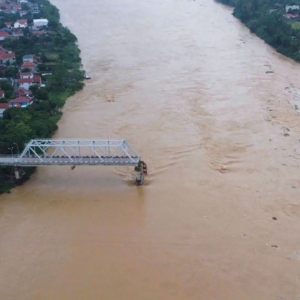Hello guys! Welcome to my channel! My name is JC, a University Lecturer in the UK. 哈喽大家好,欢迎来到我的频道——每天学点经济学人英语。我叫JC,是一名在英国高校工作的大学老师。In this channel, I hope to share with you some latest news happening around the world, and some useful words and expressions to talk about them. 那么这个频道呢主要是和大家分享一些最新的热门话题,以及如何用地道的词汇和短语进行表达。我们选用的语料主要来源于《经济学人》: 一本诙谐幽默的英文新闻周报。选用它主要是因为它的用词相当日常,而且常常带有梗的成分,可以说是学习英语的不二之选。那么话不多说——let’s jump right in!
Hey guys! It's Sep 13th 2024. Today’s news is about Typhoon Yagi. It hit South East Asia severely last week, causing death and huge economic loss.
【听力原文】
Super Typhoon Yagi made landfall in northern Vietnam, killing one person. The cyclone, the most powerful in the Pacific this year, ripped roofs from buildings, uprooted trees and swept boats out to sea. It had earlier passed across the Chinese island of Hainan, where two people died. Scientists think that typhoons in the region will form closer to the land and strengthen more quickly because of climate change.
【参考译文】超强台风摩羯在越南北部登陆,造成一人死亡。这场今年太平洋最强的飓风掀翻了建筑物的屋顶,将树木连根拔起,并将船只卷进大海。它早些时候经过中国海南岛,造成两人死亡。科学家认为,由于气候变化,该地区的台风将在离陆地更近的地方形成,并更快地增强。
【逐句分析】
1. Super Typhoon Yagi made landfall in northern Vietnam, killing one person.
超强台风摩羯在越南北部登陆,造成一人死亡。
Make landfall on/in:在…登陆
The cyclone, the most powerful in the Pacific this year, ripped roofs from buildings, uprooted trees and swept boats out to sea.
这场今年太平洋最强的飓风掀翻了建筑物的屋顶,将树木连根拔起,并将船只卷进大海。
Rip: v. to remove sth quickly or violently, often by pulling it猛地扯开;突然拉开
< He ripped off his tie.> 他一把拽掉领带。
Uproot: to pull a tree, plant, etc. out of the ground将…连根拔起
- to leave a place where you have lived for a long time; to make sb do this(使)离开家园(或熟悉的地方等)
Sweep: v. to move or push sb/sth suddenly and with a lot of force(迅猛地)推送,吹走,冲走,带走
< The little boat was swept out to sea.> 小船被吹到大海的深处去了。
v. 扫走
< She swept the crumbs into the wastebasket.> 她把面包屑扫进废纸篓里。
It had earlier passed across the Chinese island of Hainan, where two people died.
它早些时候经过中国海南岛,造成两人死亡。
区分pass, past
Pass: v. 通过;走过
< The road was so narrow that cars were unable to pass.> 道路太窄,汽车无法通过。
v. 时间推移
< Six months passed and we still had no news of them.>半年过去了,我们仍然没有他们的音讯。
Past: prep/adv. 经过
Prep:
Adv: 他跑过时,我大声喊他。
Scientists think that typhoons in the region will form closer to the land and strengthen more quickly because of climate change.
科学家认为,由于气候变化,该地区的台风将在离陆地更近的地方形成,并更快地增强。



 252
252 2
2
